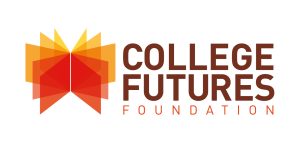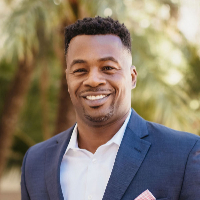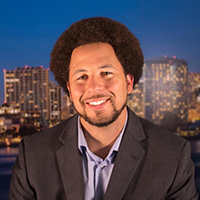Racelighting
 Dr. Frank Harris III, Dr. J. Luke Wood
Dr. Frank Harris III, Dr. J. Luke Wood
This five-part course series addresses how schools, colleges, and universities can address racelighting. Racelighting is an act of psychological manipulation where people of color receive racial messages that distort their realities and lead them to second-guess themselves. There are two types of racelighting, active and passive. Active Racelighting occurs when the perpetrator has the intention of sowing doubt and disorienting the racelightee. Passive Racelighting occurs through an accumulation of microaggressions that serve to sow doubt and disorient the racelightee. Most often, these messages are unintentional. In this course, we address both forms of racelighting and provide specific steps that individuals and campuses can take to reduce racelighting and its impact on Black, Indigenous and People of Color (BIPOC).

15 Hr

4 Credits

15 Hr

Certificate with 1.5 CEUs
Course Description
COLLEGE FUTURES FOUNDATION FUNDED PROJECT
This program was made available to all learners without cost by the College Futures Foundation. The College Futures Foundation works “to ensure that more students who reflect California’s diversity complete a B.A. and access the opportunity for a better life. We believe this is best accomplished when California’s education system is designed to meet students’ needs, dedicated to fulfilling their aspirations, and ensures equitable outcomes.”
COURSE DESCRIPTION
This five-part course series addresses how schools, colleges, and universities can address racelighting. Racelighting is an act of psychological manipulation where people of color receive racial messages that distort their realities and lead them to second-guess themselves. There are two types of racelighting, active and passive. Active Racelighting occurs when the perpetrator has the intention of sowing doubt and disorienting the racelightee. Passive Racelighting occurs through an accumulation of microaggressions that serve to sow doubt and disorient the racelightee. Most often, these messages are unintentional. In this course, we address both forms of racelighting and provide specific steps that individuals and campuses can take to reduce racelighting and its impact on Black, Indigenous and People of Color (BIPOC).
COURSE OUTCOMES
Define racelighting and its primary types.
Articulate common microaggressions that serve to racelight BIPOC.
Describe how racelighting is associated with other unhealthy outcomes.
Strategies for addressing racelighting at the personal and institutional level.
COURSE PREREQUISITES
There are two dispositional prerequisites for this course. Learners must have a willingness to:
Acknowledge their own unconscious and conscious biases and the effect this has on the educational experiences of Black students.
Engage their personal responsibility for redressing disparate educational outcomes for Black students in education.
COURSE DURATION
Each module requires a 4 hours commitment (including video session and readings).
CWHO CAN JOIN
CORA (Center for Organizational Responsibility and Advancement) is offering Racelighting for all educators.
About Instructor

Frank Harris III
Dr. Frank Harris III is a professor of postsecondary education and Co-Director of the Community College Equity Assessment Lab (CCEAL) at San Diego State University. He is best known for his expertise in racial [in]equity in postsecondary education and has made important contributions to knowledge about college student development and the social construction of gender and race in college contexts. His work prioritizes populations that have been historically underrepresented and underserved in education.

J. Luke Wood
J. Luke Wood, Ph.D. is Dean’s Distinguished Professor of Education and Vice President for Student Affairs & Campus Diversity at San Diego State University. Formerly Wood served as Associate Vice President for Diversity and Innovation. Dr. Wood is also Co-Director of the Community College Equity Assessment Lab (CCEAL), a national research and practice center that partners with community colleges to support their capacity in advancing outcomes for men of color. He has delivered over 1,000 scholarly and conference presentations and more than 150 publications to his credit, including 15 books and 75 peer-reviewed journal articles.

